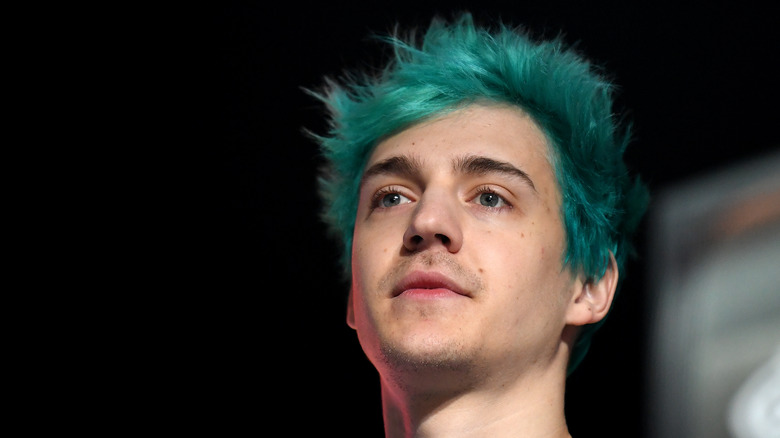We Finally Know Why Mixer Failed
Microsoft's June 22 announcement that it would be shutting down Mixer surprised and shocked the streaming world. Naturally, people wanted to know why Mixer was closing its doors so suddenly, and why its partners were being directed to Facebook Gaming instead. A Business Insider article asserts that the reason was a combination of Mixer not turning enough of a profit — what some people assumed already — and internal problems at the company.
As BI puts it, Mixer's power play of securing some of the biggest names in streaming didn't really work out. The fledgling streaming service was trying to break into an industry that was already dominated by Twitch and YouTube. It needed to carve out a space for itself in the streaming world. Using Microsoft's megabucks, Mixer scored exclusive contracts with superstars like Ninja and Shroud, hoping they'd bring their enormous audiences with them. It worked to some extent but, apparently, not as well as Mixer executives had hoped.
Ninja has around 3.2 million followers on Mixer. His Twitch channel, which he hasn't used since 2019, still boasts nearly 15 million followers. It's a similar story with Shroud, who has 1.2 million followers on Mixer and 7.1 million followers on his currently inactive Twitch account. With those disappointing numbers, it seems clear that Mixer's top-down strategy of poaching Twitch's biggest stars didn't give the return on investment that it needed to.
The other thing the data seems to indicate is that Mixer had a much smaller user base than Twitch. A couple of superstars just weren't enough to let the much smaller platform compete on even footing. That may not have been fatal if Mixer had taken a different approach — for instance, as Game Theory's MatPat suggested, by using its money to support up-and-coming streamers and grow more organically. Unfortunately, Mixer's smaller audience may not have been enough to support the enormously expensive contracts that the company had with Ninja, Shroud, and others. In this case, it seems like Mixer shot for the moon and landed in a black hole.
That's the obvious stuff, but money may not be the only reason Mixer is shutting its doors. Former employees have come forward accusing Microsoft's management of toxicity and outright racism. Milan Lee, who resigned from the company in May 2019, recently recounted disturbing experiences at the company and the failure at every level of management and HR to address his concerns.
Compounding Microsoft's problems, the co-founders of Beam (Mixer's original name before it was bought out and rebranded) left the company late last year, along with some other high level executives. Reports say that employee morale plummeted after they left and Microsoft's new management was brought in. According to one former employee, budget cuts and layoffs had gutted an already-too-small team, leaving those who remained overwhelmed and frustrated.
Management didn't help matters. A brief YouTube video from inside one of Mixer's town hall meetings shows general manager Shipla Yadla addressing the employees. According to Onmsft, "While tackling the concerns of the Mixer employee pool, Yadla referred to their feedback as 'blah, blah, blah' and surmises legitimate issues as 'negative feedback.' Yadla also mentions in the town hall that while she has empathy for the group she has no tolerance for 'negativity' or 'negative feedback' and that she is not there to 'sympathize with anybody.'" That seems to relate back to Lee and others' complaints of workplace toxicity.
Now that Mixer is shutting down, Microsoft is trying to move its streamers and audience over to Facebook Gaming. Mixer's PR is couching the move in terms of a great opportunity for streamers to expand their audience using Facebook's massive reach. Ninja and Shroud, however, don't seem interested in giving Facebook a go.
Mixer will close up shop for good on July 22, only four and a half years after it was founded as Beam. It remains to be seen whether Facebook Gaming can take its place and establish itself as a legitimate competitor to Twitch and YouTube, especially since some of the biggest streamers out there have outright refused to join.

